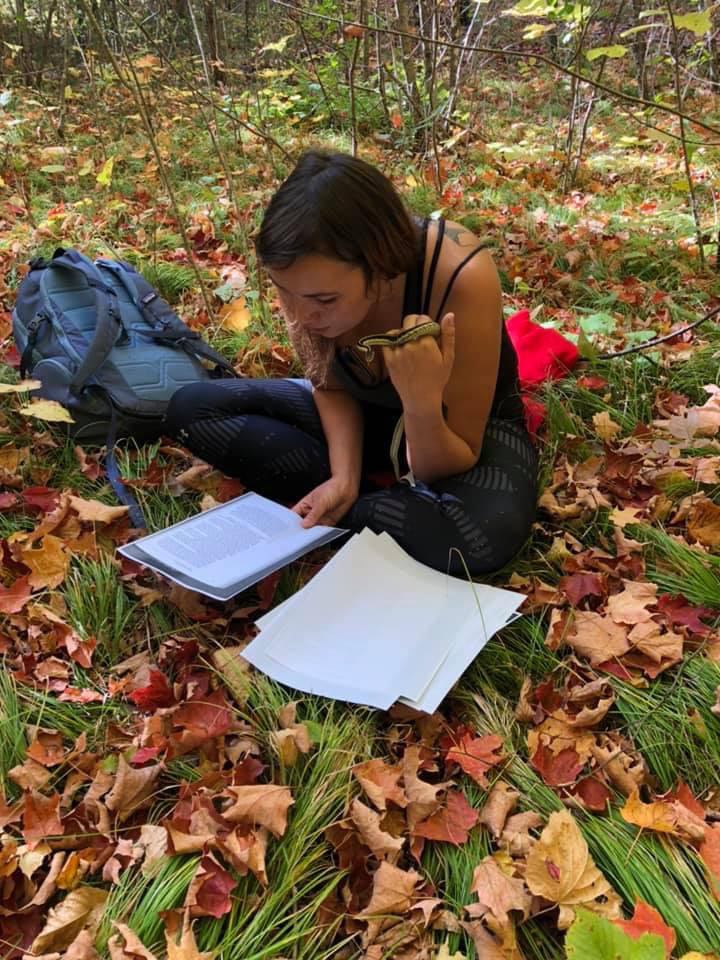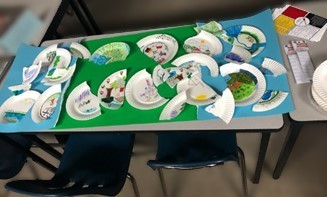Inclusion of Active Learning and Impacts on Student Experience
Active learning, multiple means of representation, and multiple means of engagement – all outcomes of the course redesign – were, and continue to be, a focus in seminars. These outcomes also inform the small group work and collaborative learning that occur in lecture.
The 2020 course delivery included guest speakers, a KAIROS Blanket exercise conducted by First Peoples House of Learning staff, various small group discussions, and creating pipe cleaner eyeglasses as a metaphor for worldview. Students participated in active/experiential learning activities including two consecutive seminars on the Drumlin – the first focused on storytelling on the land and IK related to trees; the second explored the collection of scientific data about these trees.
Recent offerings of the course continue to include guest speakers, small group discussions, and applications of course concepts to upcoming assessments, along with individual activities such as contributing to learning community-wide word clouds and sharing takeaways at the end of class. Seminar leaders continue to review assessment guidelines and provide a variety of examples (creative, strong, and well-written examples from previous students).

We applied the UDL principle of multiple means of action and expression in the course revision by introducing format choices (written, drawing, video recorded) for many of the assessments. Other activities have included seminars held in the tipi, various drawing activities, and a diversity of icebreaker games. These activities create a more supportive and creative learning environment for the students and their different learning modalities.

The KAIROS Blanket exercise has been replaced with a seminar activity: Paawaawayin© – An Awakening activity, which is an active learning exercise created by Shawanda in 2020. The Paawaawyin activity is a pivotal moment for students that immerses them in the historical context of land dispossession and promotes a deeper understanding of the relationality of IK and environmental philosophy.

